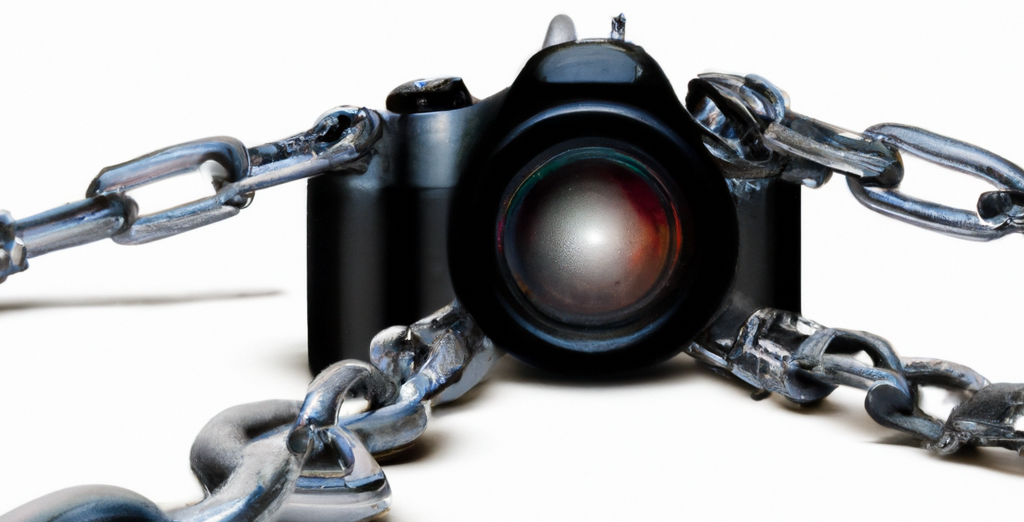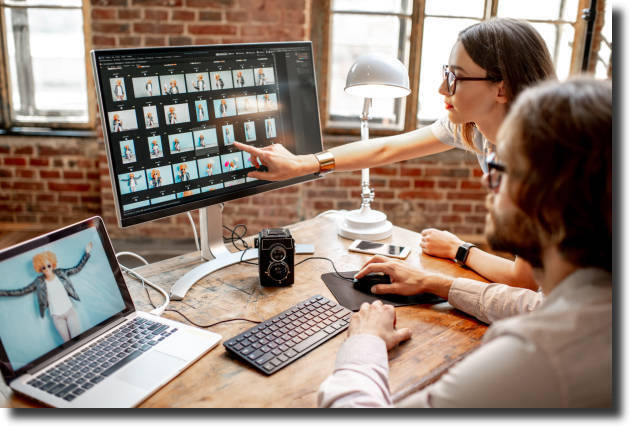
Photographers are constantly on the go, exploring the world and capturing stunning images of their travels. But in this digital age, where cybercrime is rampant and data privacy is more important than ever, photographers need to be wary of how they store their work online.
This is where a Virtual Private Network (VPN) comes in handy. A VPN encrypts your data and hides your IP address when you’re surfing or working online, so you can rest assured that no one is snooping on your files or tracking your activities, that’s why VPN for photographers is so important now.
But with all the different types of VPNs out there, it can be hard to know which one is right for you. In this blog post, we’ll explore the best VPNs for photographers in 2023 – so you can keep your work secure while still enjoying the freedom to travel and capture beautiful moments around the world.
What is a VPN?
A VPN, or virtual private network, is a secure tunnel between your device and the internet. VPNs are used to protect your online traffic from snooping, interference, and censorship. A VPN encrypts your internet connection and routes it through a server in another location, making it appear as if you are browsing from that country.
This allows you to bypass restrictions and access sites that would normally be blocked in your country.
VPNs are an essential tool for photographers who want to keep their online activity private and secure. A good VPN will encrypt your traffic, hide your IP address, and prevent third parties from tracking your online activity. A VPN can also help you access blocked websites and content.
The Benefits of Using a VPN for Photographers

There are many benefits of using a VPN for photographers.
Perhaps the most obvious benefit is that a VPN can help to keep your identity and personal information safe when you are online. This is especially important if you are sharing photos or working on projects with others. A VPN can also help to improve your online security by encrypting your data and making it more difficult for hackers to access your information.
In addition to keeping your data safe, a VPN can also help to improve your online privacy. This is because a VPN can hide your real IP address and make it more difficult for third-party websites to track your activity. This is especially useful if you are concerned about being targeted by advertising companies or other online entities.
Finally, a VPN can also help to improve your online experience by allowing you to bypass censorship and restrictions. This is especially useful if you live in an area where there is internet censorship or if you want to access content that is blocked in your country. By using a VPN, you can connect to a server in another country and access the internet as if you were there.
The Best VPNs for Photographers in 2023
As a photographer, you know the importance of online privacy. After all, you don’t want your images being shared without your permission. A VPN can help protect your online privacy by encrypting your data and keeping your identity hidden.
But with so many VPNs on the market, it can be hard to know which one is right for you. That’s why we’ve put together this list of the best VPNs for photographers in 2023.
1. HideIPVPN:
HideIPVPN is a great option for photographers who need a reliable and fast VPN service. With servers in over 20+ countries, you’ll be able to find a server that’s close to your location for better speeds. And with strong encryption, you can rest assured that your data is safe from prying eyes.
2. Hola:
Hola is another great option for photographers who value their online privacy. It was discovered in 2015 that Hola does something that no other VPN service does: it transforms the PCs of its users into “exit nodes,” enabling other Hola users to route their traffic through such nodes.
3. Opera VPN:
Opera VPN is a free of charge choice for photographers who want an easy-to-use VPN service. It has a fairly intuitive interface and offers strong security features like 256-bit encryption. But any free VPN service should be used with caution because their level of privacy is typically far lower than that of a commercial provider. Despite Opera’s denials, certain privacy-focused websites (like RestorePrivacy) assert that Opera does gather user activity logs. Consider signing up for a paid VPN service if you’re concerned about your security and privacy.
Setting Up Your VPN
Setting up a VPN for photographers can be an important step in protecting their online privacy and security, as well as their sensitive data such as images and client information. Here is a step-by-step guide on how to set up a VPN for photographers:
Step 1: Choose a VPN service
The first step in setting up a VPN for photographers is to choose a reputable VPN service. There are many VPN services available, and it can be difficult to know which one to choose. It is important to look for a VPN service that offers the following features:
- Strong encryption: Make sure the VPN uses the latest and most secure encryption standards, such as AES-256.
- No-logs policy: Choose a VPN that does not keep any logs of your online activity.
- Reliable and fast connection: A good VPN service should be reliable and fast, so that you can easily upload and download your images.
- Network size: The larger the network, the more options you have to connect to, which can provide greater flexibility and help you bypass geo-restrictions.
- Jurisdiction: Look for a VPN that is based in a country with strong privacy laws, as this can provide an additional layer of protection for your data.
Step 2: Sign up for the VPN service
Once you’ve chosen a VPN service, you’ll need to sign up for an account. This typically involves providing your email address and choosing a subscription plan. Some VPN services may also require you to provide your payment information.
Step 3: Download and install the VPN software
The next step is to download and install the VPN software on your computer and/or mobile device. Most VPN services offer a variety of apps for different devices, including Windows, Mac, iOS, and Android. Follow the instructions provided by the VPN service to install the software on your device.
Step 4: Configure the VPN settings
Once the VPN software is installed, you’ll need to configure the settings to make sure that the VPN is set up correctly. The specific settings will vary depending on the VPN service you’ve chosen, so refer to the VPN’s documentation or customer support for guidance. Some VPN services also have a built-in tutorial to help you set up the VPN.
Step 5: Connect to the VPN
Once the VPN is set up and configured, you can connect to it by launching the VPN software and logging in with your account information. This will establish a secure, encrypted connection between your device and the internet, protecting your online privacy and security.
It’s also important to note that photographers may need to also secure their equipment such as cameras and laptops with a physical security such as a cable lock, or data-at-rest encryption. Furthermore, it is important for photographers to keep a backup of their important images and client information in case of data loss.
In summary, setting up a VPN for photographers can be a simple process by choosing a reputable VPN service, signing up for an account, downloading and installing the VPN software, configuring the VPN settings, and connecting to the VPN. Remember, a VPN is only one piece of the puzzle when it comes to securing personal and client data. Photographers should also consider other measures such as physical security, and making sure they have a backup of their important files.
Best VPN for photography
HideIPVPN offers a VPN service with military-grade encryption, and high-speed servers with unlimited bandwidth.
Our service comes with shared IP addresses so that your activity can never be tied to one particular user, further protecting your privacy.

We also offer DNS leak protection, a Kill Switch, the latest VPN protocols, and a guaranteed no-log policy.
Best VPN Deal! Get HideIPVPN for $2.7/mo!
Every purchase you make comes with a 30-day money-back guarantee.
FAQs About VPNs and Photography
If you’re a photographer, chances are you’ve considered using a VPN. A VPN can offer many benefits to photographers, including increased security and privacy, and the ability to access geo-restricted content. But with so many VPNs on the market, it can be tough to know which one is right for you.
Here are some frequently asked questions about VPNs and photography:
1. What are the benefits of using a VPN for photography?
Using a VPN can help protect your online privacy and security while uploading or sharing photos online. It can also allow you to access photography websites and services that may be blocked in your location.
2. Which features should I look for in a VPN for photography?
When looking for a VPN for photography, you should look for features such as a no-logs policy, robust encryption, and support for multiple protocols. Additionally, it would be ideal to have a VPN with a wide server network, this way you can have access to more online resources.
3. How do I set up a VPN for photography?
Setting up a VPN for photography can vary depending on the VPN provider and the device you’re using. Generally, you’ll need to sign up for a VPN service, download and install the VPN software, then connect to a server. The VPN provider should provide detailed instructions on how to set up their service.
4. What are the risks of using a VPN for photography?
Using a VPN can introduce risks if the VPN provider does not have strong security practices in place, such as logging your data or not providing adequate encryption. Additionally, there is also a risk of a VPN failure, this could leave your device exposed to the internet.
5. Are there any free VPNs for photography?
There are some free VPN services available, but they may not be suitable for photography use. These free VPNs often have limitations in terms of server locations, speed, and data usage, and they may also have unclear logging policies, which can leave you exposed to security risks. For photography, consider a paid-for VPN with a strong reputation to ensure the best experience.



